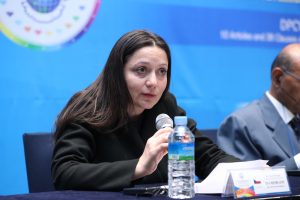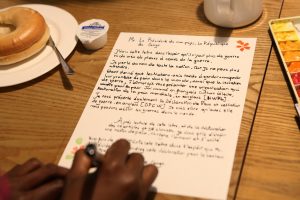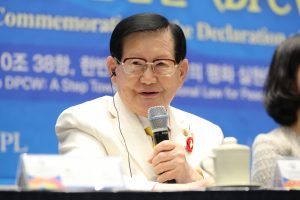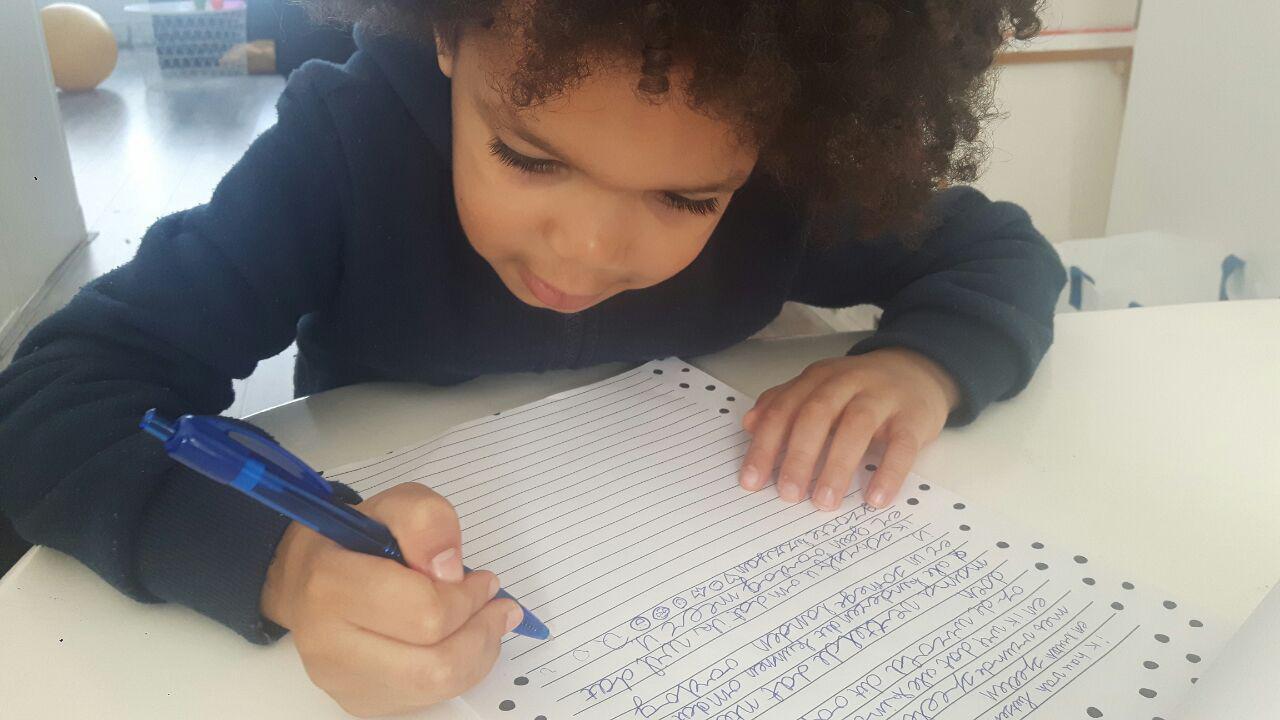On March 14th, about 30,000 people from all sectors of the society including government officials, religious leaders, heads of NGOs, media persons, and citizen gathered in Seoul, South Korea, to redouble efforts for the establishment of international law for peace.
Hitting the 3rd anniversary this year, the annual commemoration of the Declaration of Peace and Cessation of War (DPCW) was hosted by an international peace NGO, Heavenly Culture, World Peace, Restoration of Light (HWPL), to share the progress of activities undertaken to introduce the DPCW to the UN as a resolution.
The DPCW drafted by international law experts includes principles of peacebuilding such as the prohibition of the use of force, development of friendly relations, and peaceful dispute settlement. And it emphasizes international cooperation based on interfaith dialogue and civic participation to create and spread a culture of peace.
Mr. Pravin Harjivandas Parekh, President of Confederation of Indian Bar, said “The strength of HWPL is to awaken and tie the civil with the idea of peace. The DPCW connects considerably with civil societies contributors since peace cannot be continued just through the voices of elites and institutional processes. It suggests civic societies function as the peace-building actors which aim for the implementation of the citizens’ advocacy encouraging a culture of peace.”
 Regarding a culture of peace, Ms. Anna Cervenakova, member of Human Rights Research Center, explained that it means a certain system of values where on the first place is a respect for human life, ending the war, armed conflicts or violence and taking action in promoting peace, human rights, fundamental freedoms, sustainable development, and environmental needs for present and future generations.
Regarding a culture of peace, Ms. Anna Cervenakova, member of Human Rights Research Center, explained that it means a certain system of values where on the first place is a respect for human life, ending the war, armed conflicts or violence and taking action in promoting peace, human rights, fundamental freedoms, sustainable development, and environmental needs for present and future generations.
According to the progress report announced at the event, the DPCW has been supported by Seychelles, eSwatini, and Comoros at the governmental level. At the international level, the inter-governmental organizations such as PARLACEN (Central American Parliament), PAP (Pan-African Parliament), and Centre for BBS (International Centre for Black Sea-Baltic Studies and Consensus Practices) have cooperated with HWPL for the enactment of the DPCW through signing MOU.
 Along with the official support from governments and international organizations, this year’s anniversary highlighted the “Peace Letters” to the heads of states and UN ambassadors in 193 countries. Written by global citizens, the “Peace Letter Campaign” as a part of advocacy plan for the international movement for peacebuilding by civic participation has been carried out worldwide to collect support from women, youth, and citizens for the establishment of a legally-binding framework for international law for peace.
Along with the official support from governments and international organizations, this year’s anniversary highlighted the “Peace Letters” to the heads of states and UN ambassadors in 193 countries. Written by global citizens, the “Peace Letter Campaign” as a part of advocacy plan for the international movement for peacebuilding by civic participation has been carried out worldwide to collect support from women, youth, and citizens for the establishment of a legally-binding framework for international law for peace.
“Since 2018, IPYG has collected over 200,000 peace letters and sent them to the 7 heads of states: South Africa, Indonesia, New Zealand, Namibia, Malaysia, Bosnia and Herzegovina, South Korea. Starting from today, we have great expectations for its future. The first goal is to submit the DPCW to the UN General Assembly in the form of a draft resolution and have it adopted. The second is to create a new peninsula to achieve peaceful unification. Let us become all heroes of peace together,” said Mr. Young Min Chung of general director of IPYG.
After the first session, peace lectures on “Civil Society’s Role for Peaceful Unification, Exchange, and Cooperation of the Korean Peninsula” followed at the second session. This peace lecture was aimed to call for the collaborative efforts of civil society for peacebuilding among the two Koreas based on the principals of the DPCW.
 Chairman Man Hee Lee of HWPL said, “Korea has undergone much sorrow from the division, which still threatens our daily lives. When I was 20 years old, I had no choice but to join the tragic war. We need to listen to what the soldiers said. They blamed their countries. Do the countries compensate for the loss of life? There should be no longer victims of war in our globe. Should we stand still and do nothing in this reality?”
Chairman Man Hee Lee of HWPL said, “Korea has undergone much sorrow from the division, which still threatens our daily lives. When I was 20 years old, I had no choice but to join the tragic war. We need to listen to what the soldiers said. They blamed their countries. Do the countries compensate for the loss of life? There should be no longer victims of war in our globe. Should we stand still and do nothing in this reality?”
“The unification of Germany was triggered by citizens, not the force or politics. Some might say that the military confrontation serves as a major challenge to peace and unification. Use of force must be dissuaded to achieve peace, which is also designated in the DPCW. It has principles to secure peace in our times. When we advocate peace to our national leaders, they can be peace advocates; But if they do not listen to their people, they will be offenders against peace,” he added.
The host organization, HWPL, is a peace NGO in Special Consultative Status with the UN ECOSOC and associated with the Seoul Metropolitan Government and the UN DGC. For the purpose of ceasing all wars and creating a peaceful world as a legacy for future generations, HWPL has been carrying out 3 main peace initiatives – International law for peace, Inter-faith dialogue meeting, and Peace education.

